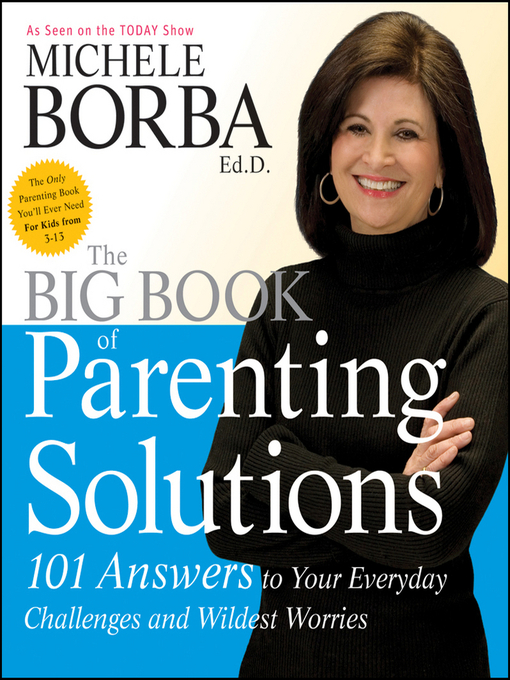Study shows kid pick up on parental stress far more than we know with tragic impact. Watch out! The kids are watching and wish WE WOULD TAKE A TIME OUT!
Parenting Alert: Our Stress Is Trickling Into Our Families..and the Kids Say, “CHILL!”
 On a recent drive to Los Angeles I passed a billboard on the freeway: “Recession 101: Stop obsessing about the economy. You’re scaring the children.”
On a recent drive to Los Angeles I passed a billboard on the freeway: “Recession 101: Stop obsessing about the economy. You’re scaring the children.”
Those words hit hard. After all, these are tough times. Job insecurity, an uncertain future, and the recession are certainly grounds for parental stress but please beware. A study shows that our kids are tuning into our stress far more than we recognize.
Let’s face it, parenting can be also stressful. You may think that you’re shielding your children from your worries, but a new report released by the American Psychological Association shows we’re not doing such a good job of trying to cover up our stress.
The report found that 91 percent of 1,136 young people ages 8-17 surveyed say they know parents are stressed, largely by our behavior.
The survey, conducted by Harris Interactive online in August,reveals that our kids are watching and what they are see and hear in our behavior isn’t all for their best. A few findings:
34 percent of kids say parents yell
30 percent say parents argue with other people in the household
18 percent say parents are too busy or “don’t have time for me”
Ouch! But there’s more.
How Our Stress Impacts Kids
Here is the real clincher. The survey revealed how our kids feel when their parent is stressed:
- Sad (39%)
- Worried (39%)
- Frustrated (31%)
- Annoyed (24%)
- Helpless (21%)
- It does not bother me (14%)
- Angry (13%)
- Scared (13%)
- Alone (8%)
- Other (2%)
Source: American Psychological Association by Frank Pompa, USA TODAY
Parental Stress Hurts Our Kids
Our stress is impacting our kids. Two additional reports about that stress buildup are troubling. If you need a little bit more motivation that it’s time to change, read on. Here are just two (of many) that show “happy days” on the home front may be taking a backslide.
Drinking and taking drugs–marijuana and cold and cough syrup–is up amongst teen girls. The top reason girls say they are getting high: to reduce stress at home.
An APA report showed teen stress increasing to epidemic levels and call it a “medical health hazard.” Teens say the top reason for the stress: Pressures from home.
The recession, job uncertainty, house foreclosures are just three reasons stress is rising. But the recession doesn’t help reduce those heightened levels. More lists. More to do. More pressure. More concern about getting “everything just right.” More worries about money. Stress may be inevitable but the research (as well as our own best instincts) that we must tune into those stress triggers and find healthy ways to stop that tension from building in our homes.
7 Tips to Help Put a Lid on Family Stress
Here are seven secrets that help you remain calmer, and keep your household more peaceful.
The trick is discovering which stress reducer (pick just ONE) works best for you and your family, and then practice the strategy until it becomes a habit. It could be any of these seven strategies or any other. Practicing the stress reducer as a family will help everyone learn how to put a lid on a hot temper and lower that tension. Remember: stress comes before anger. The secret is to reduce that stress so it doesn’t escalate to the boiling point. No, it’s not easy, but it is doable and the impact on your family is profound.
STRESS REDUCER 1: Give Yourself a Time-Out
Stress comes right before anger and we usually have only seconds to stop that pressure buildup. So tune into your stress signals (a pounding heart, your clenched fists, the grinding teeth, your raised voice), and then act. Say, “Mommy needs a time-out.” Then turn and walk, sip water slowly, or take deep breaths. Do whatever it takes to get back in control even if you need to lock yourself in your bathroom a few minutes. Then teach your kids to do the same.
A big secret on this one: Create a nonverbal signal (like an umpire uses that signals “Time Out”) and use the hand gesture to show you — or another member — needs a time out. When we’re in stress mode our voice tone goes up a notch (or two) and we’re more likely to do that thing kids hate: y-e-l-l. So try a hand signal. It can be a goldmine with a teen.
STRESS REDUCER 2: Use “Calm Talk”
Learn to say a simple message to yourself to control your temper. “Stop and calm down.” “Stay in control.” Or: “I can handle this.”
Choose one phrase, and then rehearse it a few times each day until you can use it.
One mom wrote her calm down phrase on a card and stuck it in her diaper bag. (Her baby was a real “mover and shaker” and changing him was a “challenge”). As soon as she opened the bag, she’d see her card. It reminded her to calm down, and so she did. A dad set an alarm on his cell. When it went off, it was his cue to “practice.” Find what works for you.
STRESS REDUCER 3: Take Five (or a 100)
My girlfriend reduces her motherhood stress by listening to a soothing CD of water sounds. Whenever she feels her “Wicked Witch of the North” mode coming on, Sharon quickly retreats to her bedroom, closes the door, turns on the tape, plops on her bed, and zones out—that is, for five minutes. She says those few minutes help her regain control so she feels calmer.
Another friend has her mother phone her preschooler at four o’clock each afternoon and keep her daughter occupied for ten minutes, so she can “Take Five” and just “regroup.”
Deliberate counting (while taking slow, deep breaths) can help calm you down and reduce that stress. Find what works for you!
STRESS REDUCER 4: Teach: “Stop and Breathe”
The very second you feel you’re losing control, take a deep, slow breath (or two or three or as many as it takes).
 Getting oxygen into your brain is one of the fastest ways to relax. I used this strategy with my own kids, they’d remind me when my patience-level was on a nose-dive. “Mom, ‘Stop and breathe’, they’d chime. (Such sweet little helpers. Now if they could only recognize their own stress signs).
Getting oxygen into your brain is one of the fastest ways to relax. I used this strategy with my own kids, they’d remind me when my patience-level was on a nose-dive. “Mom, ‘Stop and breathe’, they’d chime. (Such sweet little helpers. Now if they could only recognize their own stress signs).
If you need a reminder to take a breath, wear a watch, ring, or special bracelet. Looking at it (or feeling it), often helps remind you to BREATHE!
STRESS REDUCER 5: Imagine Something Calming
Think of a person or place that helps you feel calm and peaceful—your Honey, that special romantic spot, the beach, your bed.
The second you feel your stress building, close your eyes and think of the person or your calm place while breathing slowly.
My girlfriend loads her I-pod with soothing music and plugs it in when the going gets tough. Find what works!
STRESS REDUCER 6: Use Elevator Breathing
Close your eyes, slowly breath out three times, then imagine you’re in an elevator on the top of a very tall building. Press the button for the first floor and watch the buttons for each level slowly light up as the elevator goes down. As the elevator descends, your stress fades away. Just remember to do it the minute you feel that stress start to mount.
STRESS REDUCER 7: Try Stress Melting
Find the spot in your body where you feel the most tension; perhaps your neck, shoulder muscles, or jaw. Gently close your eyes, concentrate on the spot, tense it up for three or four seconds, and then let it go. While doing so, imagine the stress slowly melting away. Or let those yoga deep breathing exercises you may have practiced kick in.
Anger management isn’t just for moms and dads. Why not get your whole family involved in learning one of these secrets to help them cope with stress and quick tempers? Remember, just choose one strategy, announce your intentions, and then show everyone how it works. If you practice it as a family you’ll have not only a calmer you, but a more peaceful household. (Sigh! — and it’s back to Happy Days!)
Stress is mounting–for parents and in our kids. Let’s get serious, recognize that our kids’ mental health is at stake, find ways to reduce those stressors that we can and learn healthy ways to reduce those that we can’t.
All the best!
Dr. Michele Borba, Parenting Expert

I am an educational psychologist, parenting expert, TODAY show contributor and author of 22 books.
You can also refer to my daily blog, Dr. Borba’s Reality Checkfor ongoing parenting solutions and late-breaking news about child development.
Follow me on twitter @MicheleBorba
You can also find dozens more research-based and practical tips in my latest book, The Big Book of Parenting Solutions. For more tips about helping kids online see Stressed, Angry, Tanrums, Anxiety, Worried About the World.

